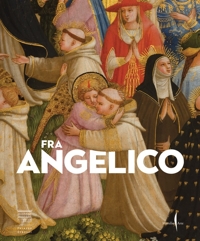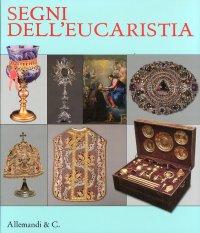Beato Angelico
Firenze, Palazzo Strozzi, September 26, 2025 - January 25, 2026.
Edited by Carl Brandon Strehlke.
Testi di Stefano Casciu, Marco Mozzo, Angelo Tartuferi.
Venezia, 2025; bound, pp. 456, 300 col. ill., cm 24x29.
cover price: € 80.00
|
Books included in the offer:
Beato Angelico
Firenze, Palazzo Strozzi, September 26, 2025 - January 25, 2026.
Edited by Carl Brandon Strehlke.
Testi di Stefano Casciu, Marco Mozzo, Angelo Tartuferi.
Venezia, 2025; bound, pp. 456, 300 col. ill., cm 24x29.
FREE (cover price: € 80.00)
Marche e Toscana. Terre di grandi maestri tra Quattro e Seicento
Ospedaletto, 2007; bound, pp. 320, col. ill., col. plates, cm 25,5x29.
FREE (cover price: € 77.00)
Segni dell'Eucarestia
Edited by M. Luisa Polichetti.
Ancona, Osimo, Loreto Jesi, Senigallia, Fabriano e Metelica, 23 giugno - 31 ottobre 2011.
Torino, 2011; paperback, pp. 221, b/w and col. ill., cm 24x28.
FREE (cover price: € 32.00)
Tipofilologia. Rivista internazionale di studi filologici e linguistici sui testi a stampa. 1. 2008
Fabrizio Serra Editore
Pisa, 2009; paperback, pp. 184, cm 17x24.
(Tipofilologia. Rivista internazionale di studi filologici e linguistici sui testi a stampa. Rivista annuale diretta da Antonio Sorella. 2008. 1).
series: Tipofilologia. Rivista internazionale di studi filologici e linguistici sui testi a stampa. 0001.
Other editions available: ISSN 1971-9086
Languages: 
Weight: 0.6 kg

Baia grande. La pialassa Baiona ultima frontiera per una valle salmastra










